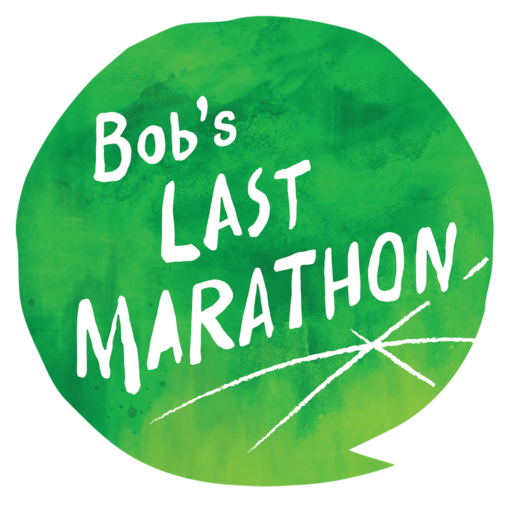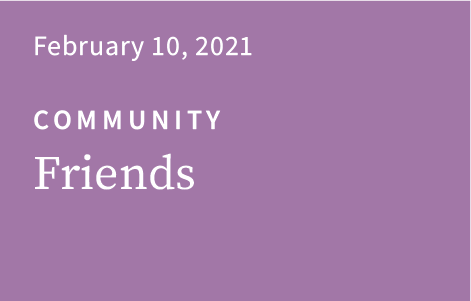Transcript
Friends
Two months after Bob’s passing, I attended an annual conference for professionals in my industry and met up with a colleague who had reached out about working with me on a project. Over the years, Arlene, which is not her real name, had become more than just a business acquaintance—I considered her a friend. Since we hadn’t seen each other for a few years, I began by letting her know about Bob’s disease and recent passing. Her first response was, “Did he still know you?” I was stunned and flustered, and I felt hurt—though I didn’t know exactly why at the time. My answer was something like, “Why does it matter now? and the rest of our meeting was awkward, ending on a somber and strained note. I never saw Arlene again.
What was it about questions like “Did he still know you?”and “Does he know your name?” Why did they bother me so much? Over the years of caring for Bob, why did they stand out as the most hurtful comments from friends?
It wasn’t until a year after his passing that I got a hint. I realized how much I cherished Bob’s recognition of me. It was a sign of our connection as a couple—one of the very few traces of our bond that endured the cruel years of his decline. Bob lost his ability to get around the house on his own; he lost his hygiene, his grooming, his handling of eating utensils, and his ability to participate in conversations. But he didn’t lose his connection with me. Bob still knew me, and gazed at me with great affection whenever I was in the room. And, somehow, he knew my name to the end. I clung to this great gift as a source of comfort, a remnant of our relationship as a couple. And for someone to question it felt like they were doubting the existence of the thing that was most precious to me, and perhaps they were reflecting my own doubts and fears. Of course, how could Arlene have known this—and so much about my life—especially when I didn’t or couldn’t share it?
Looking back, I can see how challenging it is to be a friend of people living with Alzheimer’s disease. Sharing social activities like drinks and meals goes by the wayside when your loved one loses the ability to eat or converse. Hosting friends at your home in a relaxed way becomes nearly impossible when dealing with verbal repetitions or attending to bathroom issues. Understanding this helped me accept that even the best-intentioned, most thoughtful friends could not give me the support I needed unless they knew what I was going through.
There were exceptions. Somehow, our closer, more sensitive friends knew what I needed without clues from me. Knowing me, they understood how much I valued getting together with friends and treasured those remnants of normalcy. Some would host dinners at their homes, moving meals outdoors, where cleaning up after a messy meal was less of a problem. When Bob’s mobility declined, my friends John and Susan brought cooked meals to our home to share. Problem solved! I will forever be grateful to proactive and sensitive friends like them.
But knowing what I know now, I realize I could have done a better job letting my friends know how they could help me. They needed a little guidance from me, which sometimes meant just letting them in on my challenges, and giving them a chance to be more sensitive.
I remember meeting my close friend Winnie for a drink on the patio of Il Fornaio in Palo Alto, a regular check-in—just the two of us. I was looking forward to some relaxing small talk. Instead, Winnie said she had great news, and launched into a story about a doctor who was touting a type of Mediterranean diet that might improve memory, and wouldn’t it be great to put Bob on this diet? My indifference was obvious, and she became insistent: “You have to listen,” she said, “the doctor on the radio was very adamant about this diet.” This went on for about 15 to 20 minutes until she finally said, “Okay. I remember you are a stubborn person. I just wish you’d be more open to new ideas,” and changed the subject.
What I didn’t tell Winnie was that right before meeting her I had picked up a box of adult diapers for the very first time in my life—which left me filled with emotions. I was grieving the loss of the good old days when Bob took good care of me in so many ways, and pondering what lay ahead. I felt terrible that Bob had to endure the humiliation; he was aware of the changes in himself but couldn’t control them. I also felt sorry for myself. Why couldn’t my husband be normal?
Instead of sharing these emotions, I blamed my friend—one of the kindest people I’ve ever known—for not giving me a chance to vent. Now, I realize that she would have readily listened if I had only said, “Look. I just bought adult diapers for Bob for the first time.”
Sometimes, I needed to vent. But sometimes I just wasn’t ready to pour out my emotions, and I was protecting myself by not doing so.
I was often on the receiving end of difficult, emotionally charged questions, comments, and suggestions relating to Bob’s illness. It wasn’t unusual for well-meaning friends to go down a checklist, like some intake process at a clinic. “Does he sleep through the night?” “Does he have sundowning?” “Does he wander?” “Can he feed himself?”Over time, I learned that I wasn’t obliged to indulge their curiosity. I became skilled at giving straightforward yes-no responses, in a matter-of-fact way. And for those questions that touched my inner insecurity the most—”Does he still know you?” or “Does he know your name?”—I finally learned to say, “Yes he does. And I feel very fortunate.” In this way, I comforted myself while avoiding more anguish.
Because I am professionally involved in health care, many of my friends are, too. As a result, I often received unwelcome advice in the form of articles from medical journals about the latest developments in Alzheimer’s disease. Inevitably, these articles were reporting on early success in the laboratory. Knowing that these still-unproven treatments were many years away from being available to the public, and not relevant to Bob, I would just ignore them. Occasionally, someone might ask what I thought about the articles and, in the case of one friend, offer to introduce me to the researchers. I explained that Bob already had a doctor whom I trusted, and that these developments, while exciting for the future, were not in our reach.
I could hardly say that friends were uncaring when their first questions were usually about Bob. “How is he doing?” “Is he sleeping okay?” “Is he eating well?” Selfishly, though, I wanted my friends to ask about me—first—“How are you holding up?” “Are you getting the help you need?” “Are you able to find time for yourself?” And the critical question from only a very small minority, “Is there anything I can do?”I never found a way to let friends know how much I needed this.
The reality, though, is that friends who ask questions—any question—are at least opening the door to listening. One way or another, my good friends, children, and stepchildren did find their way to support me by listening and empathizing. Words like “I’m so happy for you” or “I’m so sorry about that” went a long way toward showing they cared and maybe opening a conversation—whereas talking at me with phrases like “If I were you I would . . . “ was a sure way to stop a conversation short.
On my part, I’ve learned that it’s on me to be aware of my feelings so I can set realistic expectations from friends. It’s also up to me to gently direct the conversation to meet my needs at the time—whether it’s with a simple response that doesn’t burden me emotionally, or by being honest about what I’m going through, which opens the way for good friends to help in whatever way they can.
Lena Chow Kuhar

